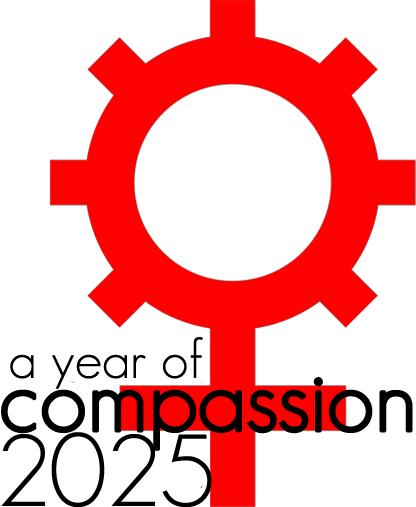Dear Diary,
In this, The Mindfulness Monologues, I have found joy to be passive. Joy is not something to be pursued but experienced by being present in the moment. The Joy of Being is available to everyone willing to stop looking too far down the road and instead enjoy what is around them here and now. I’ve been writing about several interconnected experiences: forgiveness, identity, guilt, shame, and anger, but where does all that lead? My recent writings revolve around actions. I’ve written about the pressure to do something or dealing with the consequences of actions already done. Actions, if done correctly, lead to non-action. We put in the work to be able to enjoy the fruits of our labor.
What is non-action? In short, non-action revolves around allowing the various movements of the world to happen without our (attempt at) influence. For example, I put seeds out for the birds as an action and then sit peacefully while the birds come and go as they will. I sit present with them, not judging them, and let the passive emotion of joy emerge organically. It is safe to say most of us desire to be joyful, but we are the net that holds us back. Joy, being a passive experience, comes when nothing else impedes its rise from the essence of our being. When we aren’t present in the moment, we block the emergence of joy by getting lost in our minds and experiencing other emotions due to our judgments.
How do we take the actions needed to cease acting? We live with intention. We strip away the walls we’ve built over time and open a pathway to our inner core through mindfulness and meditation. We learn to listen to the ever-present inner voice and act according to our true nature. We can move in those directions by obtaining a greater understanding of who we are and yearn to be. We develop a sense of our needs and can begin to be compassionate towards ourselves. We need not dwell on ourselves to understand if we’re where we want to be; we already know that through all our decisions.
How do we know our intentions are good ones to achieve or maintain? We know because joy will arise as a result of our decisions. Perhaps we intend to sit with a cup of tea and enjoy the breeze. Are we content at that moment just to be? If our inner voice draws our attention away, is it a call to practice meditation and return our attention to the present, or are we learning that what we thought our intentions were is not the answer? After some physical exercise, are we grateful towards ourselves for putting in the work, or are we miserable? Do the same goals consistently enter our minds, or was it a passing whim? We know the answers if we are willing to listen. Do we have the courage to change when we remain dissatisfied? Dissatisfaction will lead to grades of anger and sadness, thus blocking joy from swelling up.
Intention does not require action. If we’ve accomplished what needs to be done, it is ok to let things be and enjoy it. For example, I intend to enjoy my music to its fullest. I need to push play and let the songs play; the rest takes care of itself; I need not act. I intend to live more and worry less. I will, inevitably, need to tell myself or someone else ‘no’ when prompted to engage in something that I know will be off-putting. By allowing myself to engage in non-action, I remain aligned with my intentions and not get pulled off course.
Change is all I’ve ever known, truly. As a child, my environment changed regularly through moving from place to place. I carried the nomadic lifestyle until my late 20s where I settled down where I remain today. Coming to terms with PTSD and Bi-Polar disorder meant I was in a consistent state of change. Unfortunately, I spent most of my 30s denying I had limitations to observe and respect. As an aware and compassionate being, I wanted to combat injustice on all scales; I wanted to manifest change from others. After years of failing, my intentions began to shift after being broken and desperate. All I ever wanted was to atone for my actions. I wanted forgiveness from those I’d never again meet but was unwilling to forgive myself. Atonement, however, isn’t possible. We can’t change the past, only make different decisions as we advance down the path. We can be forgiven.
Forgiveness relieves the burden of change. If we no longer feel obligated to change, we can focus on living with intention. Our intentions guide our decisions in regards to when and how to act. When we have worked sufficiently, being present in the moment will answer whether we are on the right path. Joy will arise from our inner cores as we have the time and space to feel it. Joy is not something requiring us to sit cross-legged with our eyes closed; Joy can be experienced through any activity matching our intentions when we are present in it. The smiles we see from people engaging with what they love are genuine, and we can also attain that positive energy. Be honest with your obstacles to joy, and live with intention to remove them; you are worth it.
